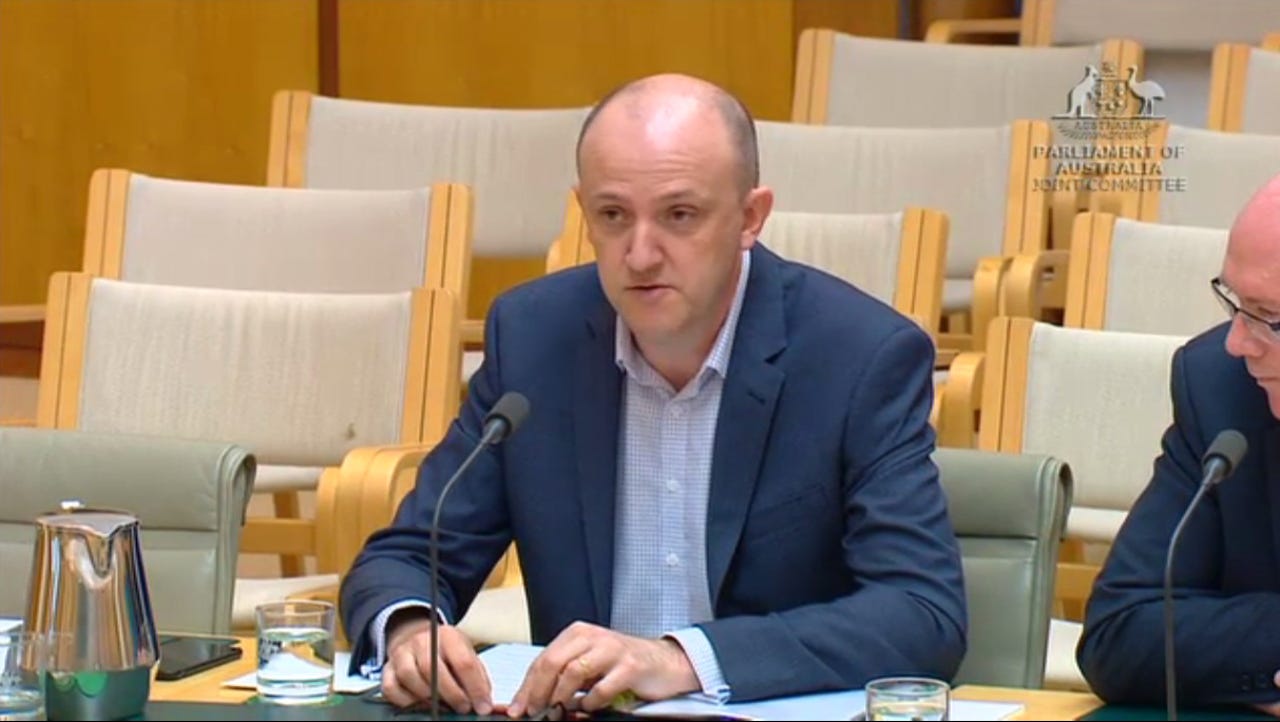ASIO boss calls for law enforcement cooperation from tech giants

Australian Security Intelligence Organisation (ASIO) Director-General of Security Mike Burgess wants technology giants to cooperate with law enforcement and disregard any arguments put up by the private sector against such action.
Speaking with the Institute of Public Administration Australia as part of its Work with Purpose podcast series on the Australian Public Service, Burgess summarised his request as "the lawful ability for a security service or a law enforcement or police agency to get lawful access to information".
"Yes, having private communications is actually a good thing … the real challenge comes though when you have a lawful need, so the police are investigating something or ASIO is investigating something and they've got a warrant and they want to get access and those providers actually refuse to actually cooperate with governments," he said.
"Under the rule of law, when appropriate warrants are in place, law enforcement or ASIO should be able to get access to something."
Burgess said while privacy is paramount, it isn't total because there's a balance between privacy and security. He said that society has accepted the fact that the police or ASIO can get a warrant to bug someone's car or house and that the same should apply to cyberspace.
"Why should cyberspace be any different, yet every time we have these conversations with the private sector companies, they kind of push back and say, 'No, we're not so sure about that'," the ASIO boss questioned.
Pointing to instances overseas with the FBI demanding Apple unlock iPhones used by terrorists, Burgess said while he can understand designing a phone that no one other than its user can access, he would like to see more cooperation.
"In our country under the rule of law, if we have a warrant -- so we've met a legal threshold and the appropriate person has said, 'yes, you can have this access' -- we would expect companies to cooperate and actually ensure that there is lawful access," Burgess said.
He disregarded opinions on ASIO abusing such powers, calling them "nonsense".
Also nonsense: Australian poll finds 1 in 8 blame Bill Gates and 5G for coronavirus
"We ask for laws that are proportionate to the threat we're dealing with, and actually ASIO is subject to independent oversight," he said, talking about the role of the Inspector-General of Intelligence and Security, adding she can "red card" him and send him to jail.
"With the appropriate oversight and the appropriate laws, I don't support private sector companies who want to fight governments to say, 'no, we can't give you', or, 'we can't cooperate with you', because the other angle that we come at this from is actually when a terrorist event occurs and then someone puts that footage online, or is broadcasting that online and the companies that are facilitating the live streaming of the death of people actually find it really difficult to cooperate on actually the blocking that material or having it removed as quickly as possible."
He said he has found it "really hard" that private sector companies do not want to cooperate with governments in dealing with abhorrent behaviour.
As the podcast series has a focus on COVID-19, Burgess also took the opportunity to talk about the increased threat Australia faced as a result of working from home more and being online more as a result of social distancing measures.
He said the "downside" of the internet has been even more prevalent.
"Once you're online, hackers -- it's their intent that matters, so if they connect with you what they do next is a matter of intent not really technical capability, so it's a world of opportunity for criminals and nation-states and extremists," he said.
RELATED COVERAGE
- ASIO: Relentless advance of technology was outstripping our capabilities
- AFP vows to damage tech giant reputations if found obstructing law enforcement
- Home Affairs report reveals deeper problems with Australia's encryption laws
- Terrorism, espionage, and cyber: ASIO's omne trium perfectum
- Dutton's non-denial fuels fears of domestic ASD cyber spying
- The pointless puppetry of national security's parliamentary processes
- Law enforcement leaning on Austrac as legislation 'lags' behind technology
- Facebook says people, not regulators, should decide what is seen
